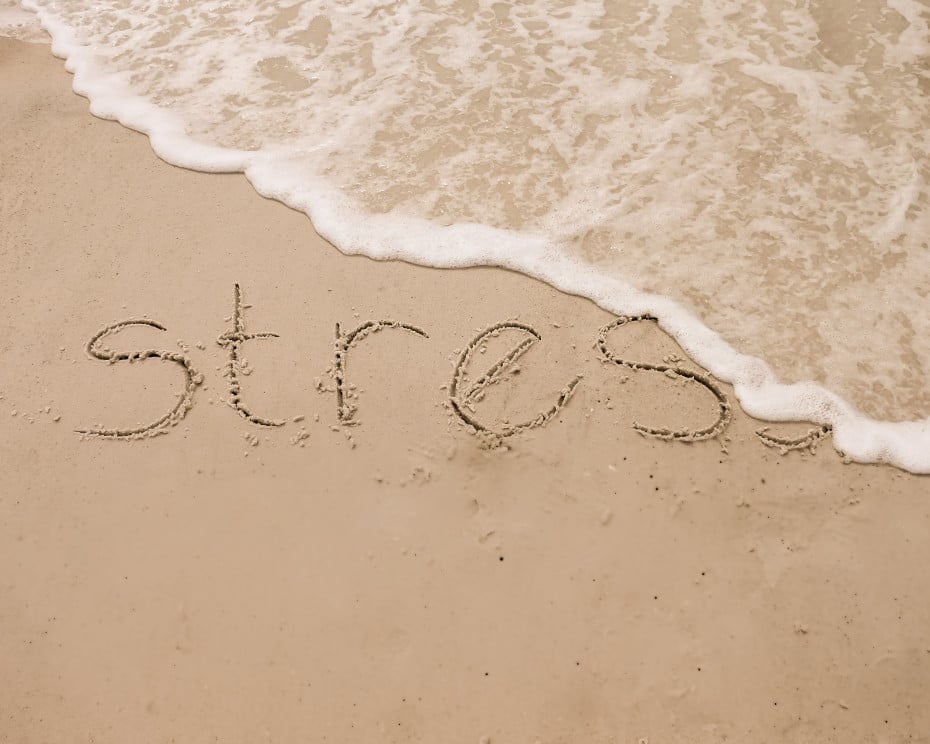Read Time: 4:30 Mins.
Stress has a great impact on our health. It’s estimated that “Stress is the most common cause of ill health in our society, probably underlying as many as 70 percent of all visits to family doctors.” Stress has historically been defined as “the nonspecific response of the body to any demand made upon it.” To meet this demand, we gear up with a fight-or-flight response. This involves a surge in the functioning of the sympathetic nervous system (increasing our heart rate), and a decrease in the parasympathetic response (our rest and relax response). If you’re feeling stressed, understanding how cannabis may help can lead to improved overall health.
How Our Bodies React to Stress
When we’re stressed, our bodies increase their production of adrenaline, a stimulating neurotransmitter, which leads to an increase in cortisol, a stimulating hormone. Physical changes include: an increase in heart rate and blood pressure (to get more blood to the muscles, brain and heart), faster breathing (to take in more oxygen); tensing of muscles (preparation for action), increased mental alertness and sensitivity of sense organs (to assess the situation and act quickly); increased blood flow to the brain, heart and muscles (the organs that are most important in dealing with danger) and less blood to the skin, digestive tract, kidneys and liver (where it is least needed in times of crisis). In addition, there is an increase in blood sugar, fats, and cholesterol (for extra energy) and a rise in platelets and blood clotting factors (to prevent hemorrhage in case of injury). Once the stress ends, our system tries to restore balance and return to normal functioning. However, if stress is chronic, restoration cannot occur, and instead of feeling energized, you can feel fatigued.
What Are Some Symptoms of Stress?
Some of the symptoms associated with stress are: anxiety, high blood pressure, headaches, depression, a weakened immune system, sleeplessness, impotence, diarrhea, change in appetite, and fatigue, among others. Managing stress is vitally important for overall health maintenance and cannabis is well suited to treat many of the symptoms of stress. If we look at the list of symptoms, we can see that cannabis can be an effective tool for the treatment of almost all of them. Our endocannabinoid system (ECS) affects many biological processes including appetite regulation, pain (including headaches), mood, sleep, and blood pressure. The ECS essentially helps keep our body’s systems in balance.
How Does Cannabis Help With Stress?
Put simply, cannabis’s two key ingredients THC and CBD work together to calm us down. The THC balances out our endocannabinoid system and the CBD works with our serotonin receptors to lower our heart rate and blood pressure which creates a natural calming effect.
Want more detail? Here you go:
To understand how cannabis can affect stress we must first remember that THC acts as a cannabinoid receptor (CB) mimicking the effects of the cannabinoids that our bodies naturally create. These CB receptors are a key part of our ECS which keeps our body’s systems in balance. The ECS helps regulate stress by reducing the activity of the “hypothalamic–pituitary–adrenal axis” (HPA axis). Simply put, the HPA axis contributes to the body’s “fight or flight” responses I mentioned earlier. If we can help the ECS lower the HPA’s impact on our bodies, this reduces the physiological effects of stress. To that end, the THC in cannabis helps our ECS get back into balance.
Scientifically speaking, stress changes the level of anandamide (AEA), sometimes referred to as “the bliss molecule,” named after ananda, the Sanskrit word for joy or bliss. Stress also affects 2-Arachidonoylglycerol (2-AG), another endocannabinoid. Stress reduces AEA and increases 2-AG. Going further, chronic stress hurts our cells ability to function well and recover which leads to the loss of CB1 receptors. Adding THC into our body compensates for this loss of the CB1 receptors. A good analogy might be eating a protein bar after working out; it gives your body fuel to recover. Adding THC into your body feeds our ECS to help fight the harmful effects of stress.
Research has found that THC dosage is important, and surprisingly, the old adage of “less is more” turns out to be right when it comes to THC dosing. High doses of THC can actually increase our body’s reaction to stress, so, as far as THC goes, low doses are better than high doses to manage stress.
As you probably already know, traditional cannabis contains both THC and CBD. Unlike THC which feeds the CB1 receptors in our bodies, CBD does not act in the same way. The value of CBD in stress management is its well-known calming effect, and it reduces anxiety. CBD acts through multiple receptors including the serotonin receptor, 5HT1A, which affects our mood. CBD is effective in lowering blood pressure and heart rate through its action on this receptor. CBD also helps reduce anxiety. In addition, there is a synergistic effect of using CBD with THC to reduce the “euphoric” effect of THC while preserving other positive results. Both CBD and THC types of cannabis have been shown to be helpful in patients with post-traumatic stress disorder in covering a great array of effects – to reduce hyperarousal, decrease anxiety, treat depression, help disordered sleep, and keep our ECS in balance, to name a few.
The important thing to consider is what stress symptoms do you have? Are you in the early – overstimulated, jittery phase and need to calm down, or are you in a later, more fatigued phase and need a pick-up? Different strains of cannabis are more effective for calming, while others may be used for restoration and improving energy. One thing that is universal for all stages of stress is to relax, try meditation, maintain your health, eat a balanced, healthy diet, get a good night’s rest, and stay positive.
Additional Ways to Manage Stress
The causes of stress are identified as “stressors” or “triggers.” We sometimes face many stressors in life, such as a relationship change, losing a job or your home, or a drastic change of environment or lifestyle. Many people have their own personal triggers as well. If you’re feeling stressed, it is essential to learn how to handle it – doctors refer to it as “stress management.”
The ABC’s of stress management has to do with key concepts:
- Alter, avoid or accept the stressor
- Behavioral modification
- Change-change your behavior, change your thinking, change your lifestyle choices and/or change the situations you are in.
If you can’t avoid stress then you need to manage it. The means to manage stress is long and multi-faceted. These may include prescription drugs, non-pharmacological therapies, and cannabis. Always talk to your doctor about options that may be best for you.
Drugs That Help With Stress
Stress is often accompanied by anxiety and insomnia, so drugs used to treat these disorders are often prescribed. Anti-anxiety drugs decrease arousal and relax the body by reducing tension in the muscles. The most commonly prescribed anti-anxiety drugs belong to the family of medications called benzodiazepines. You may know them as Xanax, Librium, Tranxene, Valium, Ativan, etc.
Long-term stress is often accompanied by high blood pressure. Beta-blockers are drugs that block receptors in the heart, which are stimulated by noradrenaline. In this way, beta-blockers decrease sympathetic activity that is also part of the fight or flight response, and by doing so, they lower blood pressure. You might know them as Betapace, Corgard, Inderal, InnoPran, Lopressor, Toprol XL, Visken, Zebeta, etc.
Other Therapies for Reducing Stress
There are many therapies available for stress management, including counseling, biofeedback, hypnosis, and meditation. Lifestyle changes and relaxation therapies can help as well, so if you’re feeling stressed, here are some pleasant options to consider:
Go for a walk.
Spend time in nature.
Call a good friend.
Sweat out tension with a good workout.
Write in your journal.
Take a long bath.
Watch a comedy.
Exercise regularly.
Savor a warm cup of tea.
Play with a pet.
Work in your garden.
Get a massage.
Curl up with a good book.
Listen to music.
Most everyone encounters stress in some way but it’s up to you to find a way to manage it. Cannabis can help along with other therapies. Remember, if you’re feeling stressed, it’s important to do something about it, and do not let it take its toll on your mind and body.
Deborah Malka, M.D., Ph.D., is an Integrative Medicine Physician and a Cannabis Clinical Specialist. She is also the Chief Medical Officer for Three Wells. Dr. Malka is available for consultation, and she can be reached at 831-359-7679.




